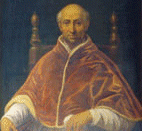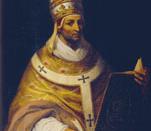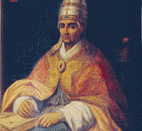Papal authority was at its prime during the twelfth and thirteenth centuries where it had both a secular and spiritual role. The early crusades made the Papacy appear even more successful and monarchs, like the Kings of England, would be willing to act for the pope. Boniface VIII's 'Unum Sanctum' was clarification, just before the beginning of the Avignon papacy, of the pope as the ultimate authority and spiritual head of Christendom. However, the Italian humanist scholar Petrarch is extremely critical of the Avignon Papacy; he goes to the extent of comparing it to the forced exile of Jews in Babylon. He believed that the Papacy were effectively captives in Avignon as quoted by Geoffrey Barraclough who describes their "Babylonish captivity" . When looking at whether the papacy was strengthened or weakened during its residence in Avignon it is important to consider not only the papal position within Christendom but the character and attitudes of the popes themselves.
It is also necessary to look at outside influences, like continual strife in Rome and elements like the progressive importance of the Cardinals.
One of the main factors that suggests the papacy was weakened whilst in Avignon is the simple yet crucial fact that it was absent from Rome. It was not merely one pope residing in another town or country but seven consecutive popes establishing an alternative centre of Christendom. The ongoing conflict and political hostility of Rome between Italian families, like the Colonna and Orsini, prevented their return but some historians consider it quite extraordinary how long their stay was. Initially Clement V had sought the safety and calm of Avignon, factors which actually led to the strengthening of the papacy as it gave a solid base to govern from. Pope John XXII reportedly found it very easy...


